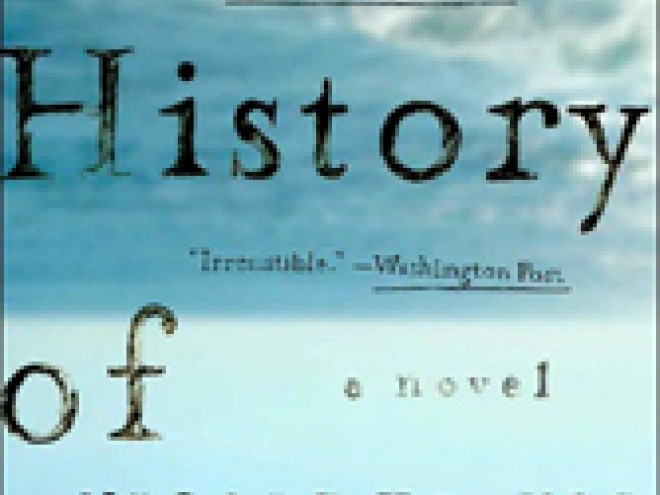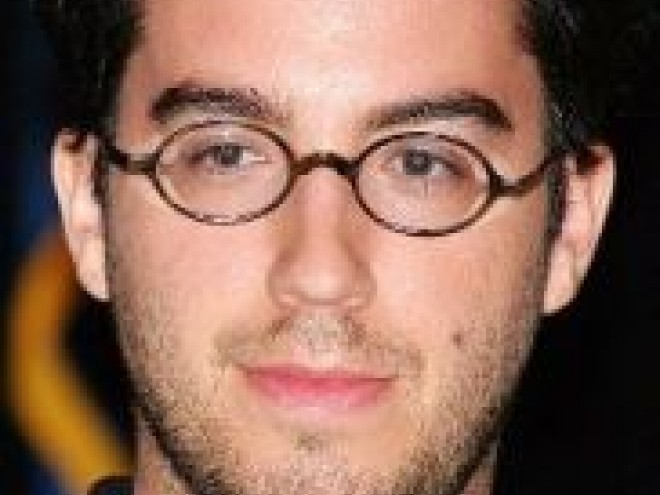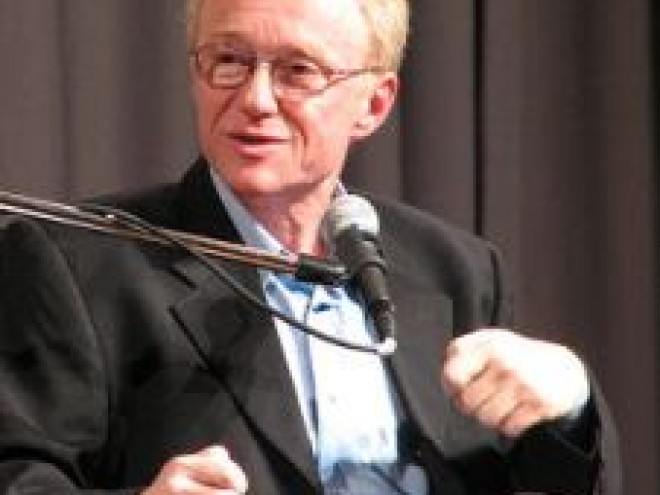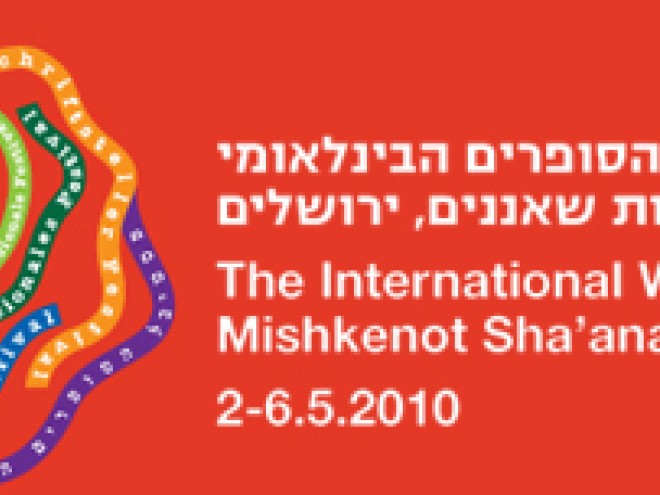
In his last posts, Bob Goldfarb, a regular reviewer for Jewish Book World, wrote about the panel “Ashes and Ink: Contemporary Holocaust Writing” and about Amos Oz and Simon Sebag Montefiore in conversation. He is blogging here all week about the International Writers’ Festival at Mishkenot Sha’ananim in Jerusalem.
Israeli author Zeruya Shalev made an emblematic observation when she spoke at the biennial Writers’ Festival at Mishkenot Sha’ananim in Jerusalem. “It’s risky to meet the writer behind a book you love,” she remarked. “It’s like meeting the parents.” But, of course that’s exactly what the Festival is all about: encounters with people you feel you know through their offspring, and the combination of recognition and surprise that entails.
Shalev took part in one of a series of sessions entitled “Writing Here, Writing There,” moderated conversations between two authors from different countries. She was paired with the American writer Siri Hustvedt, with whom Shalev shares the feeling that a fictional world is a kind of dreamscape. In Hustvedt’s words, writing is “a form of conscious dreaming.” For Shalev too it mixes the subconscious with life, a fusion of fantasies, fears, experience, and imagination.
Thinking about the interplay between life and imagination, Hustvedt, whose novel The Sorrows of an American deals with the September 11 attacks, described how she drew on a family memory in writing about the aftermath of trauma. Her father was a soldier in the Pacific in the Second World War, and when she was young her father had flashbacks about a terrible incident when a Japanese POW was killed. His speechlessness in the face of those memories led her to use more sensory imagery in her fiction.
Somehow it’s not surprising that both authors have an interest in psychoanalysis. Although she starting writing when she was very young, Zeruya Shalev wanted to be a psychotherapist. But when she tried it in the Israeli Army as a kind of social worker she was overempathetic: as she listened to her patients, she said, “I would start to cry, and they had to comfort me.” So, she wryly concluded, it was safer to work with imaginary characters. Hustvedt also wanted to become a psychoanalyst after she earned her Ph.D., a goal that was unrealized, though she has taught writing to psychiatric patients as a kind of therapy.
Siri Hustvedt observed that readers love characters the way they love people in real life, and weep at the death of a beloved character as if they actually knew them. “Literary theory is a different ballgame,” but the way people actually read, she said, is to engage deeply with characters. For her own part, she continued, “Don Quixote and Anna Karenina are as dear to me as many people in my life.”
At the same time, Hustvedt cautioned, what one should fear most in life is being shut off from what is present in the external world. “There is great potential for being wounded, and great potential for joy. Only the unprotected self can feel the beauty of joy.”
Bob Goldfarb is president of the Center for Jewish Culture and Creativity in Jerusalem and Los Angeles. He also blogs for the Los Angeles Jewish Journal.
Bob Goldfarb is President Emeritus of Jewish Creativity International.



